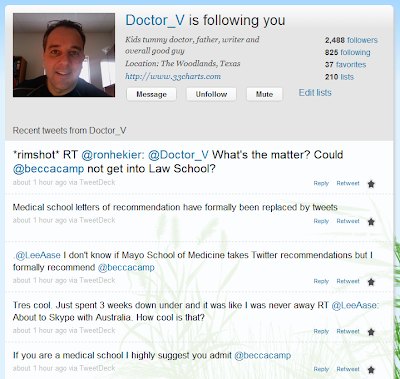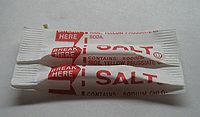Friday, April 30, 2010
Should Doctors ‘Prescribe’ a Drink a Day? No.
 From the NYTimes:
From the NYTimes:The evidence regarding wine versus other beverages like grape juice is mixed.For most people, low-risk drinking is not harmful to health — and may be helpful. However, I would discourage people from drinking in order to improve their health.
Compared with non-drinkers, men who consumed wine, beer, or spirits had a 36% lower risk of all-cause mortality and a 34% lower risk of cardiovascular mortality.
Before you recommend wine for cardiovascular risk reduction, consider this:
- One in five men at risk of drinking problem during their lifetimes
- Women have an 8 to 10 percent chance of becoming dependent on alcohol during their lifetimes
- Men have 15% lifetime risk for alcohol abuse, 10% risk for alcohol dependence. Each cuts your life short by 10-15 years.
- Heavy drinking increases risk of depression by 40%, and 80% of people dependent on alcohol are smokers
Alcohol literally kills: Gary Moore had 380mg/dL in his blood, Winehouse 416mg/dL when she died surrounded by 3 empty vodka bottles. Telegraph UK, 2012.
Alcohol literally kills: Gary Moore had 380mg/dL in his blood, Winehouse 416mg/dL when she died surrounded by 3 empty vodka bottles. Telegraph UK, 2012.
References:
Should Doctors ‘Prescribe’ a Drink a Day? NYtimes, 2010.
Before you recommend wine for CV risk reduction, consider this: 1 in 5 men at risk of drinking problem
Rethinking Drinking - NIH interactive website
Image source: Wikipedia, public domain.
Comments from Twitter:
OMC @charlesayanleke: That's a recommendation most peeps can get behind
Tibor Banyai @tibor75: Do u tell your AF pts to be 100% abstinent? Curious RT @drjohnm: RT @DrVes: Should Doctors ‘Prescribe’ a Drink a Day? No.
John Mandrola, MD @drjohnm: No I don't rec abstinence but I don't feel that alcohol adds to health. Mild intake prob neutral. Worry about cancer risk
Rethinking Drinking - NIH interactive website
Image source: Wikipedia, public domain.
Comments from Twitter:
OMC @charlesayanleke: That's a recommendation most peeps can get behind
Tibor Banyai @tibor75: Do u tell your AF pts to be 100% abstinent? Curious RT @drjohnm: RT @DrVes: Should Doctors ‘Prescribe’ a Drink a Day? No.
John Mandrola, MD @drjohnm: No I don't rec abstinence but I don't feel that alcohol adds to health. Mild intake prob neutral. Worry about cancer risk
Thursday, April 29, 2010
High deductible health insurance can be bad for your health
 See why:
See why:"The individual health insurance policy they bought to replace Janie's group coverage at work has such a high deductible that they've sharply cut back doctor visits, skipping some routine care and going only when absolutely necessary.
Freelancers Janie and Chris Peterson love the freedom of life without a boss. But it comes with a high price -- dwindling savings, erratic cash flow, and a ton of financial anxiety."
References:
Financial planning for freelance workers - Mar. 11, 2010. CNN.
Image source: United States one-dollar bill. Wikipedia, public domain.
Wednesday, April 28, 2010
"The doctor in literature: Private life" by Solomon Posen at Google Books
"This is a structured, annotated and indexed anthology dealing with the personality and the behaviour of doctors, and doctor-patient relationships - ideal for medical humanities courses."
Medical school letters of recommendation have formally been replaced by tweets

Doctor_V's tweets in Brizzly (click to enlarge the image) - read from the bottom of the screenshot.
If you are a medical school I highly suggest you admit @beccacamp .@LeeAase I don't know if Mayo School of Medicine takes Twitter recommendations but I formally recommend @beccacamp. Medical school letters of recommendation have formally been replaced by tweets.
Indeed. And if the tweets are by Doctor_V, they should be strongly considered in the admission process... :)
Tuesday, April 27, 2010
The men behind famous eponymous diseases
From CNN:
"Having a disease named after you is a decidedly mixed bag. On the one hand, your scientific developments are forever commemorated. On the other hand, though, you're stuck with the knowledge that no patient will ever be happy upon hearing your name."

Daniel Elmer Salmon (1850 – 1914) was a veterinary surgeon. He earned the first D.V.M. degree awarded in the United States, and spent his career studying animal diseases for the U.S. Department of Agriculture. He gave his name to the Salmonella genus of bacteria, which were discovered by an assistant, and named in his honor. Image source: Wikipedia, public domain.
New medical conditions that are being discovered are not named after scientists or physicians anymore. The eponymous system is non-descriptive and generally confusing.
References:
"Having a disease named after you is a decidedly mixed bag. On the one hand, your scientific developments are forever commemorated. On the other hand, though, you're stuck with the knowledge that no patient will ever be happy upon hearing your name."

Daniel Elmer Salmon (1850 – 1914) was a veterinary surgeon. He earned the first D.V.M. degree awarded in the United States, and spent his career studying animal diseases for the U.S. Department of Agriculture. He gave his name to the Salmonella genus of bacteria, which were discovered by an assistant, and named in his honor. Image source: Wikipedia, public domain.
New medical conditions that are being discovered are not named after scientists or physicians anymore. The eponymous system is non-descriptive and generally confusing.
References:
Monday, April 26, 2010
3-gram reduction in daily salt intake would decrease coronary heart disease, stroke, and death
 The U.S. diet is high in salt, with the majority coming from processed foods. Reducing dietary salt is a potentially important target for the improvement of public health.
The U.S. diet is high in salt, with the majority coming from processed foods. Reducing dietary salt is a potentially important target for the improvement of public health.Reducing dietary salt by 3 g per day (1200 mg of sodium per day) is projected to reduce the annual number of new cases of CHD by 60,000 to 120,000, stroke by 32,000 to 66,000, and myocardial infarction by 54,000 to 99,000 and to reduce the annual number of deaths from any cause by 44,000 to 92,000. Such an intervention would be more cost-effective than using medications to lower blood pressure in all persons with hypertension.
The cardiovascular benefits of reduced salt intake are on par with the benefits of population-wide reductions in tobacco use, obesity, and cholesterol levels.
References:
Projected Effect of Dietary Salt Reductions on Future Cardiovascular Disease. NEJM, 2010.
http://content.nejm.org/cgi/content/short/362/7/590
Sweat Bees prefer sweaty people because the human diet is so salty that their perspiration is saturated with that essential nutrient. WSJ, 2012.
Image source: Single-serving salt packets. Wikipedia, GNU Free Documentation License.
Subscribe to:
Posts (Atom)